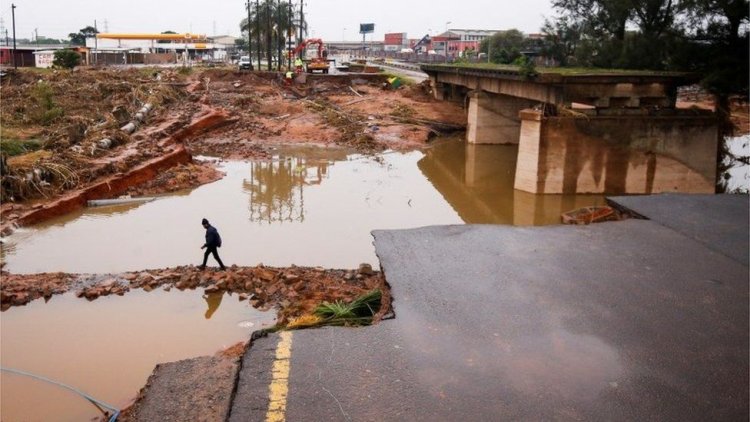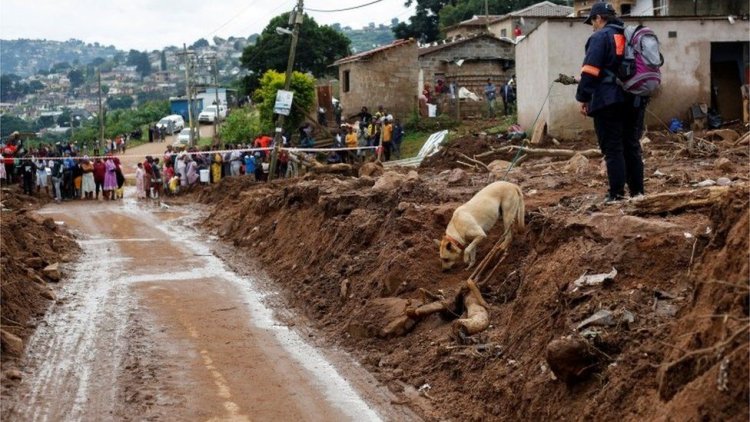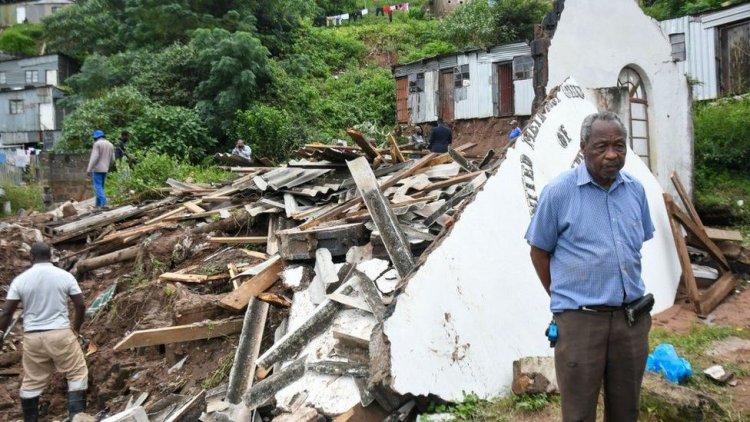Floods in KwaZulu-Natal have left more than 60 persons missing.
Climate warming, according to weather experts, may be contributing to shifting patterns and making extreme events more common.

Following the disastrous floods that ripped through South Africa's KwaZulu-Natal state last week, search operations are still underway for 63 persons who have gone missing.
There have been over 440 deaths, including two emergency workers.
Swollen rivers and mudslides wiped out several of them.
After officials labeled the floods as among the worst to ever impact the region, the government declared KwaZulu-Natal a disaster area.
Nearly 4,000 homes were destroyed and more than 8,000 were damaged in the floods, according to KwaZulu-Natal Premier Sihle Zikalala, the majority of which were in the coastal metropolis of Durban and its surrounding districts.
Both the police and army were involved in the search effort, with six more bodies recovered on Sunday, local media reported.
Lethiwe Sibiya, a woman, stated her niece had not yet been found.

"She was washed away when the mudslide occurred. We have no idea where she is. We attempted to contact the police and their dogs, but they have not arrived as of today "she stated
Nearly 300 schools, as well as numerous health care facilities, have been harmed.
Because of the collapse of roads and bridges, some communities are completely shut off.
"We don't have electricity in a lot of places," said Imtiaz Syed, the Active Citizens' Coalition's head. He stated that the organization is looking into how they can assist folks in cleaning up their homes and obtaining clean water.
Mr. Zikalala said that people needed to stop building homes along river banks.

"Many remain precariously perched on the edge of the river. In reality, no building should ever have been allowed to be erected at such a location," he said.
During a visit to flood-affected areas last week, South Africa's President Cyril Rampahosa said the government would "spare no expense" to rebuild the infrastructure and assist all affected families.
Climate warming, according to weather experts, may be contributing to shifting patterns and making extreme events more common.
Although the rain has now subsided, the amount of rain that fell on Monday was equivalent to around 75% of South Africa's typical annual precipitation.
On April 11, the weather system that precipitated the floods delivered more than 300mm of rain in 24 hours, significantly more than prior major floods.
In April of this year, 165mm of rain fell, and in October of last year, 108mm of rain fell.

 Boakyewaa Lawrencia
Boakyewaa Lawrencia 


































